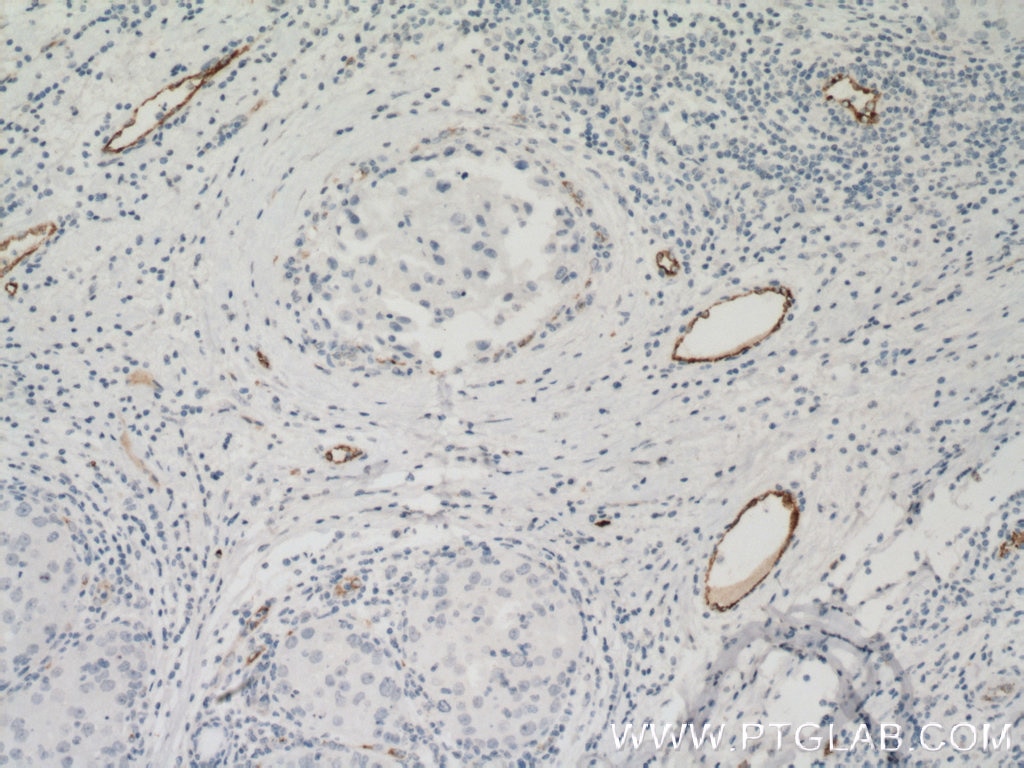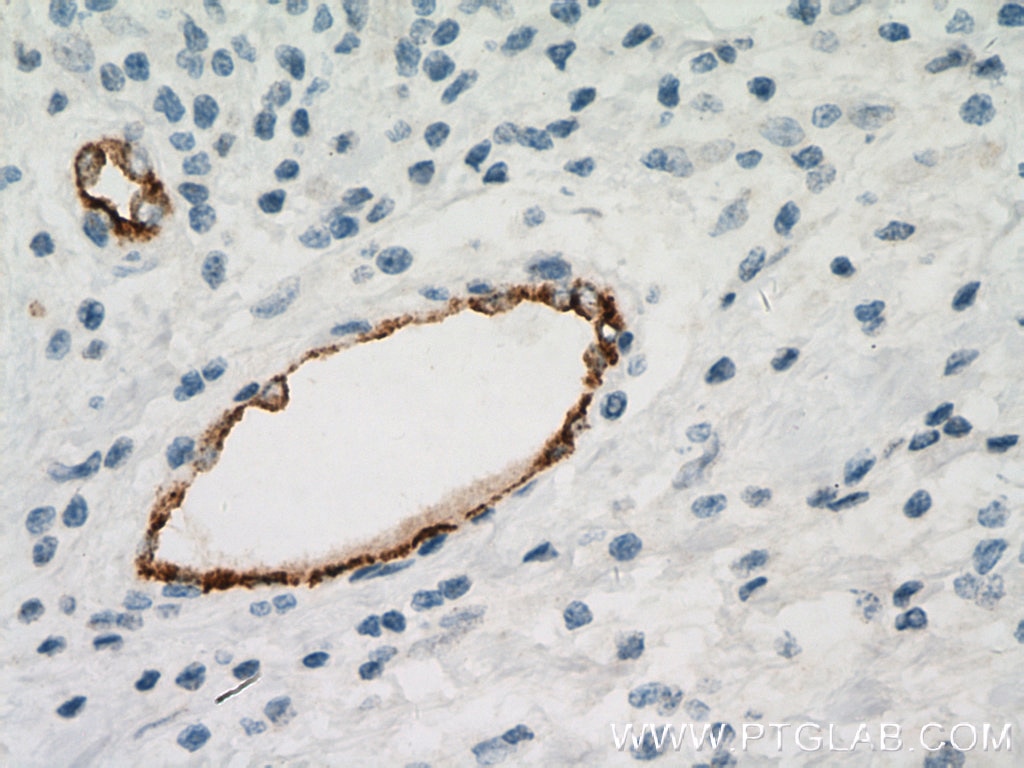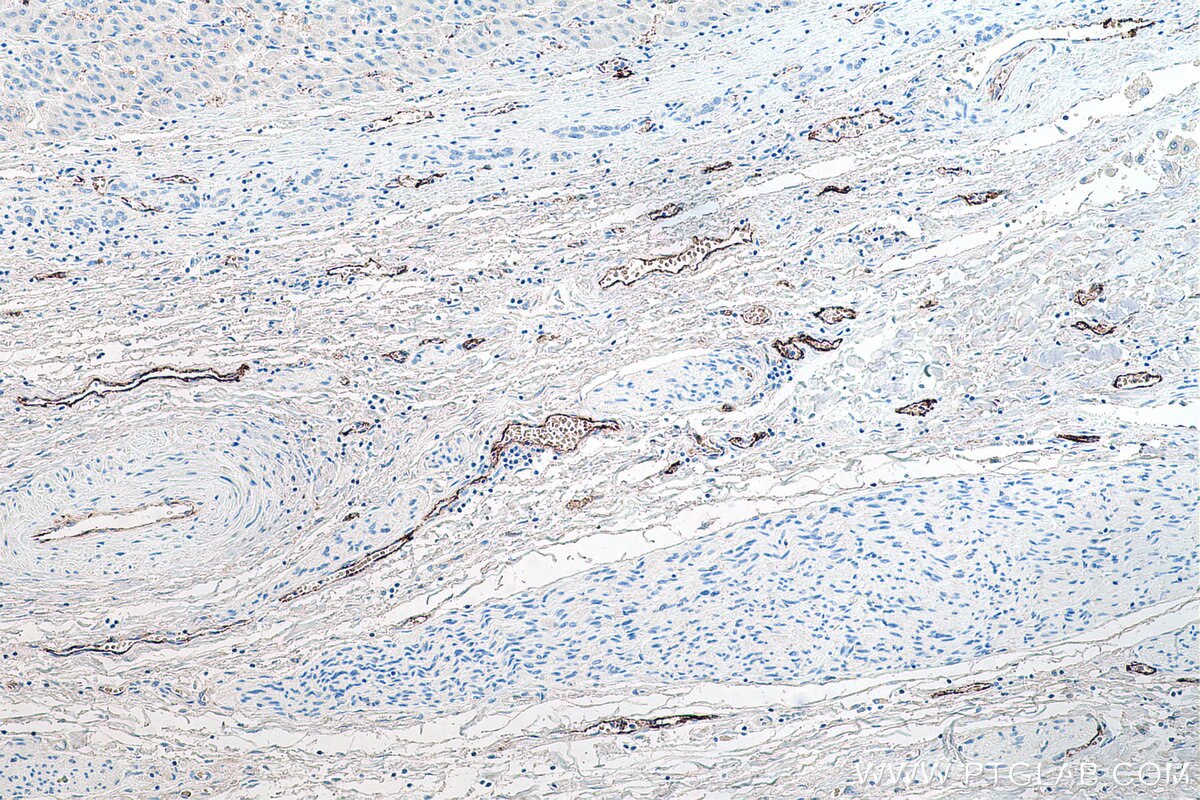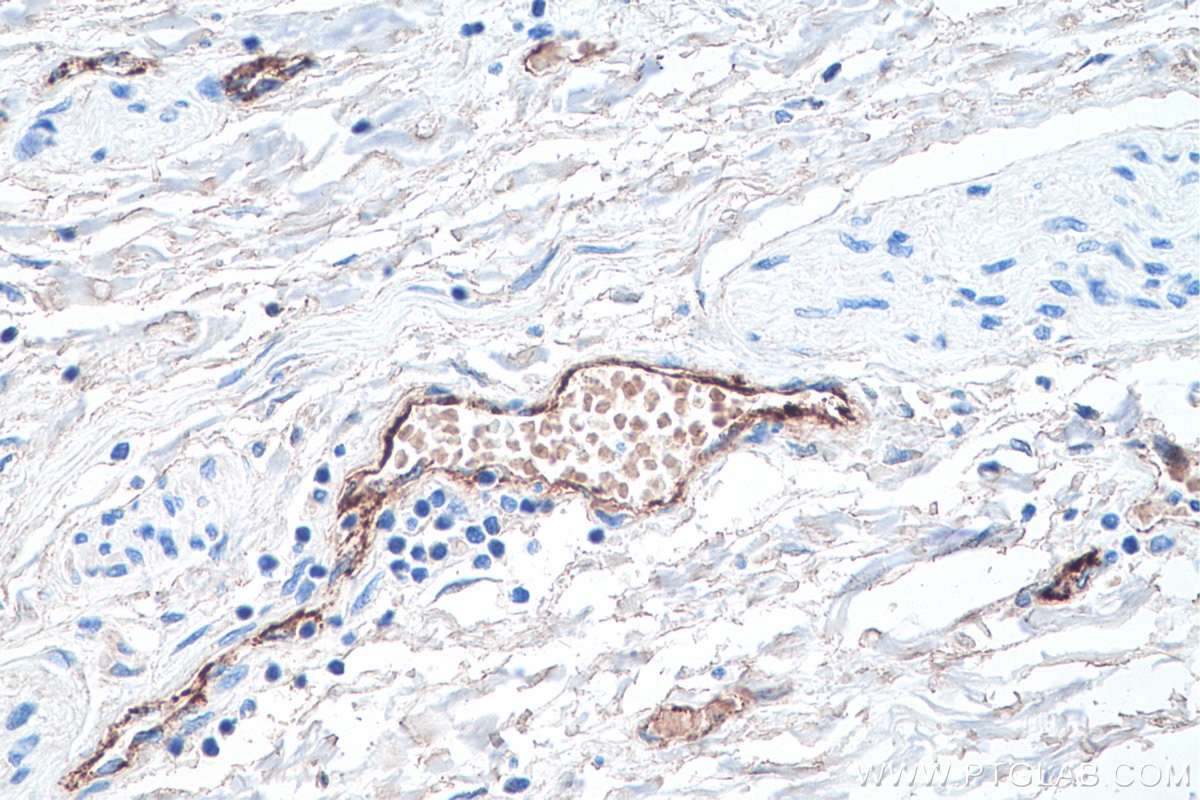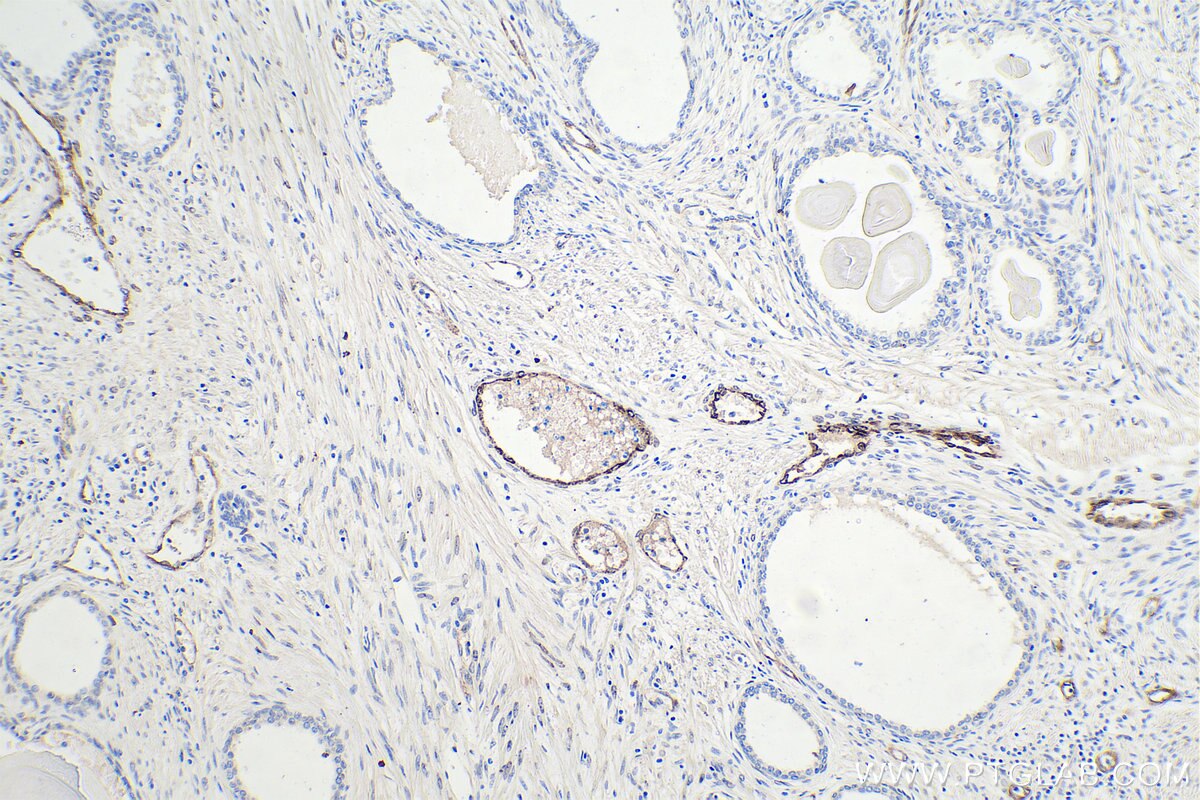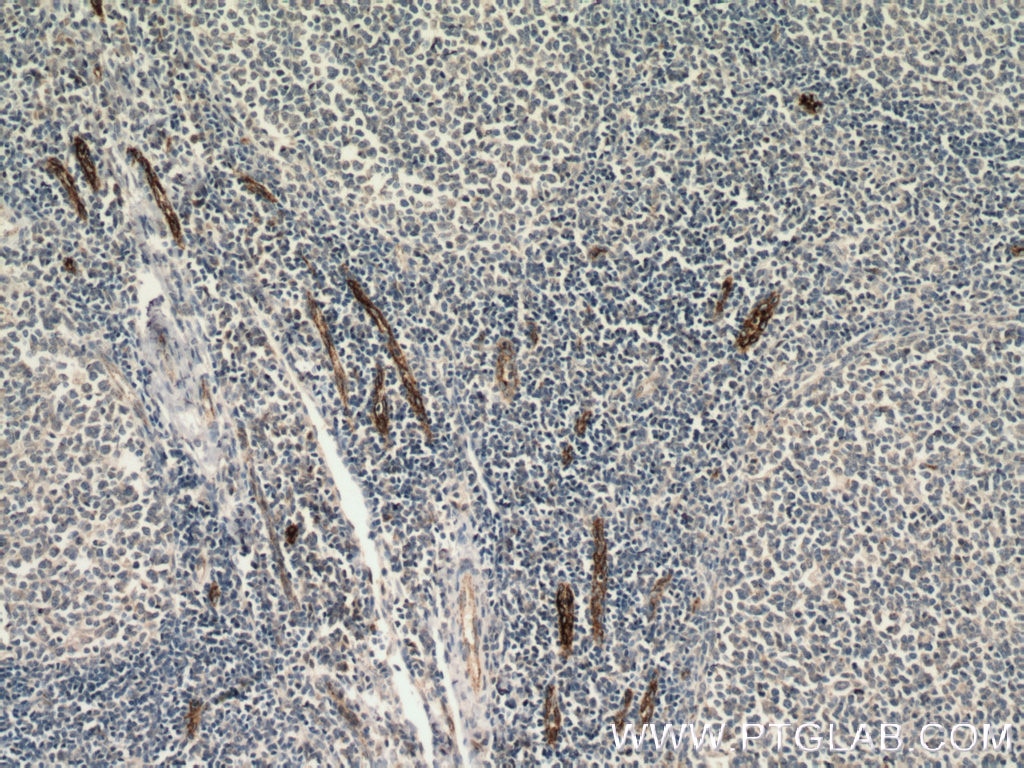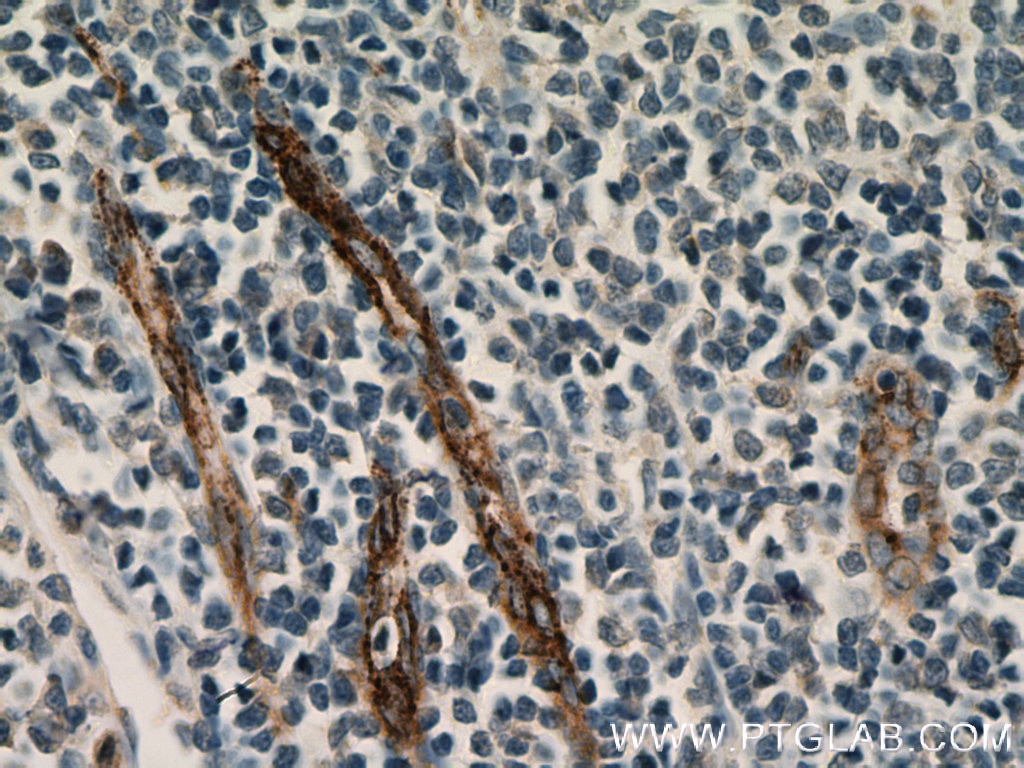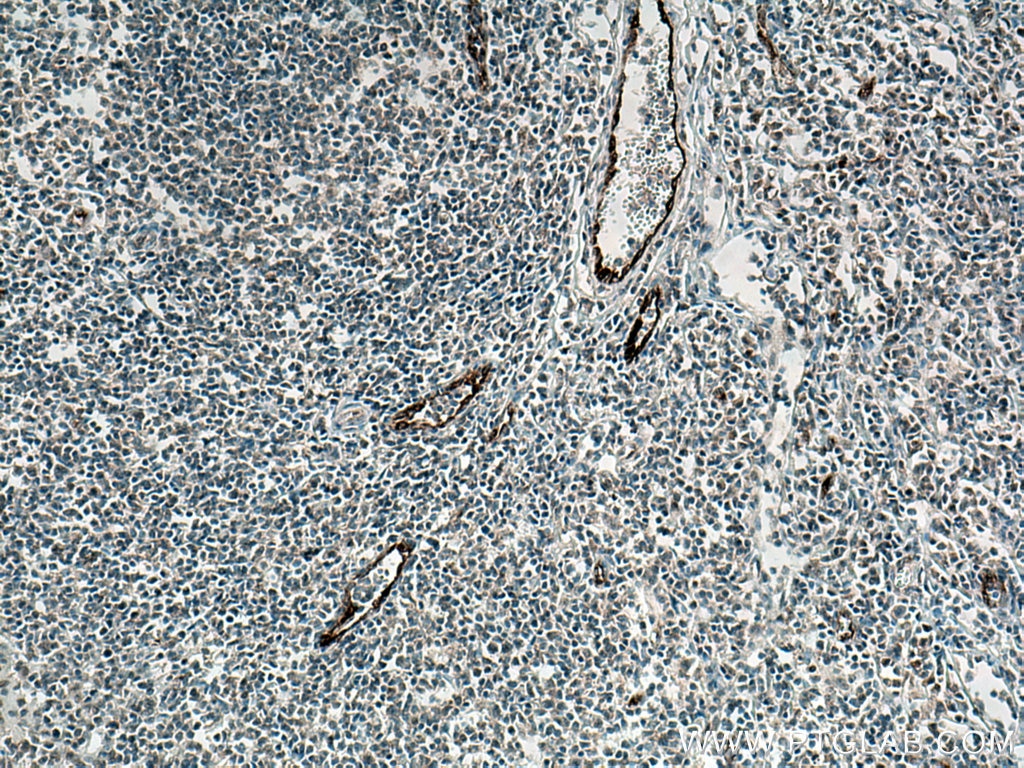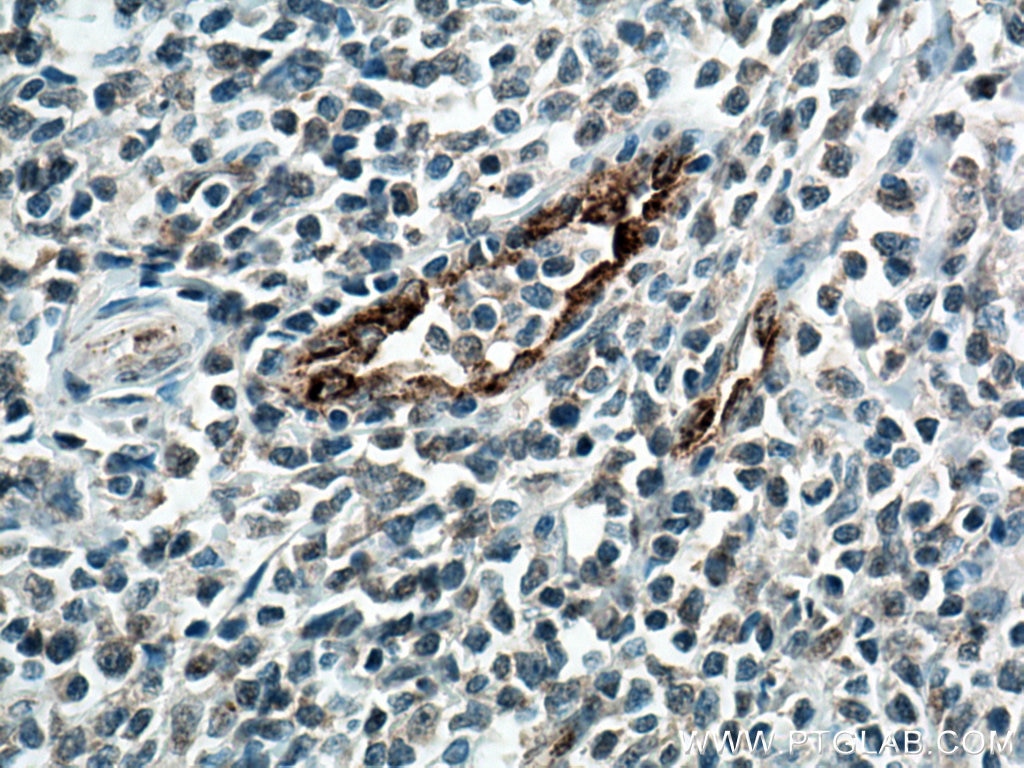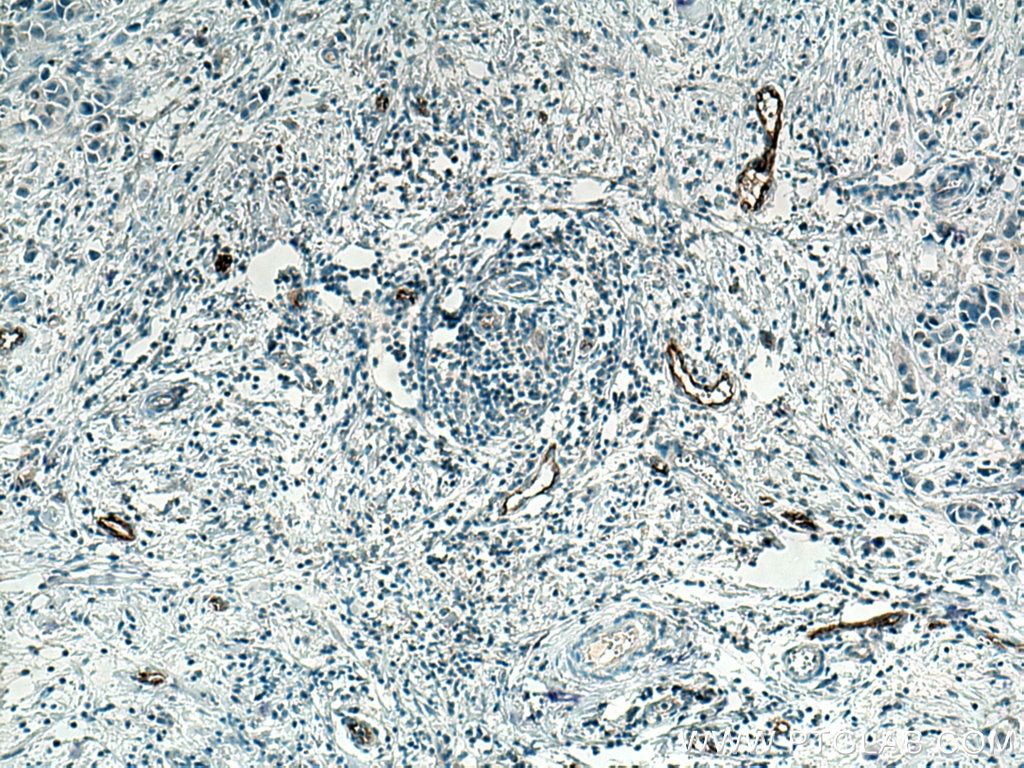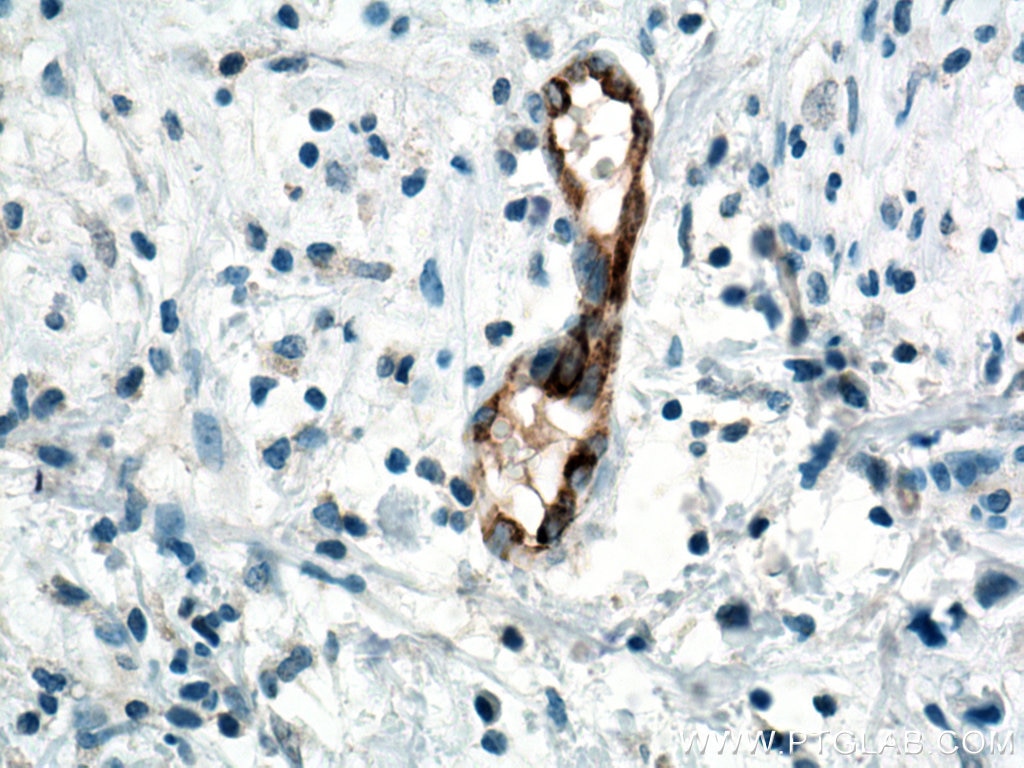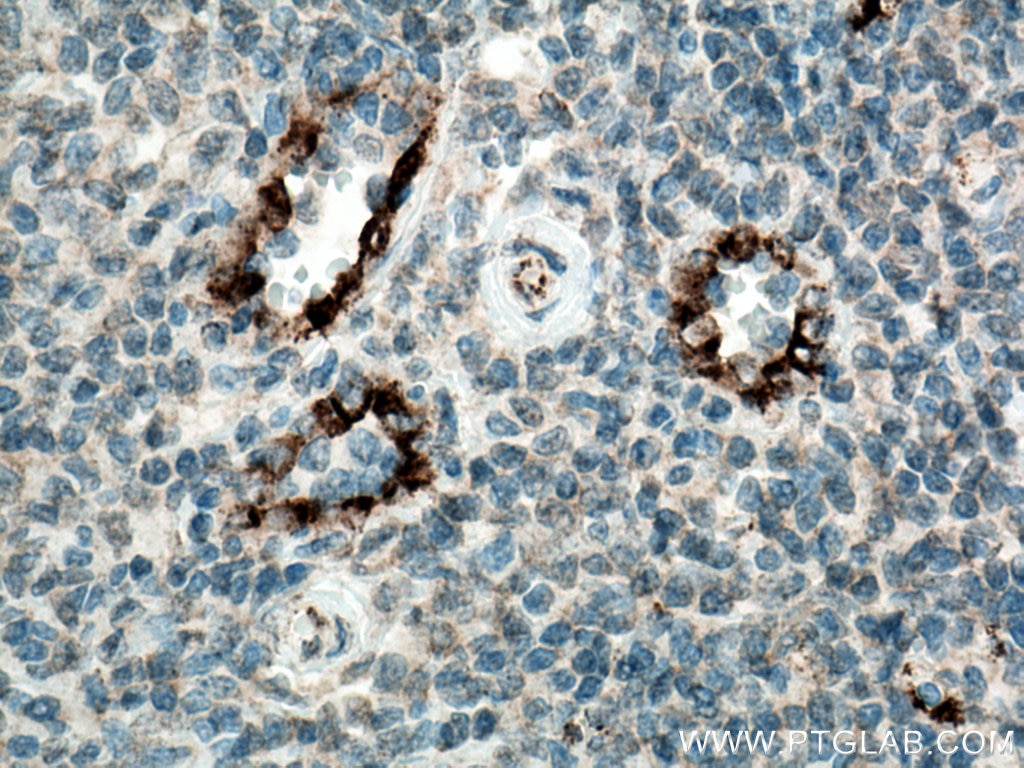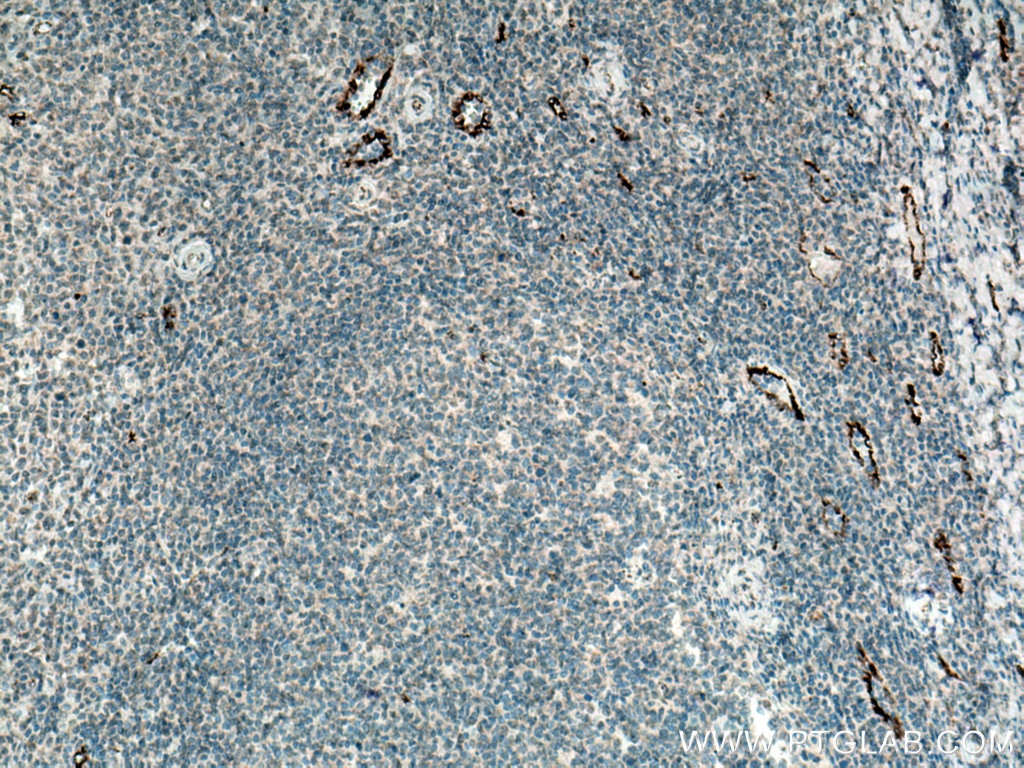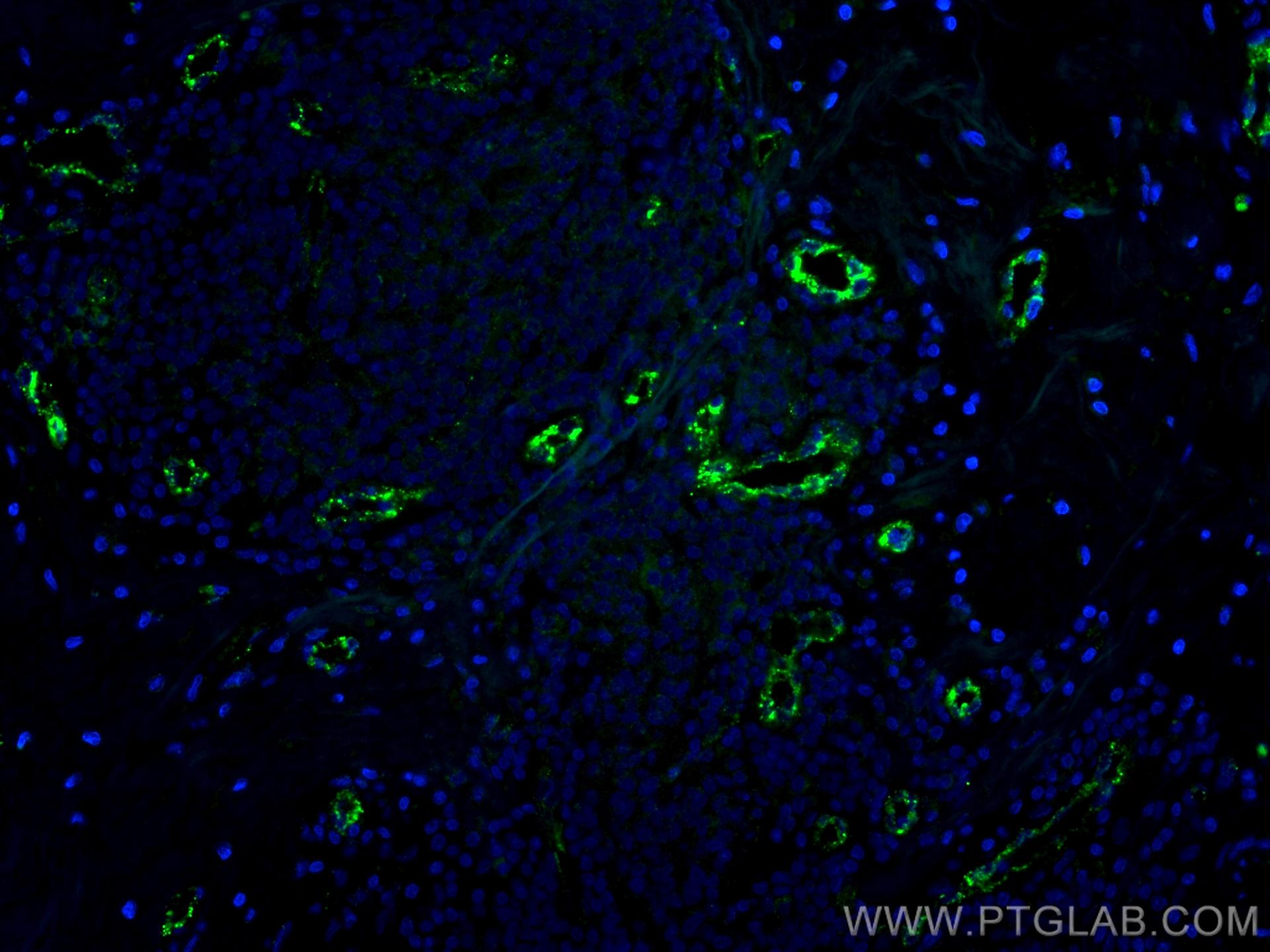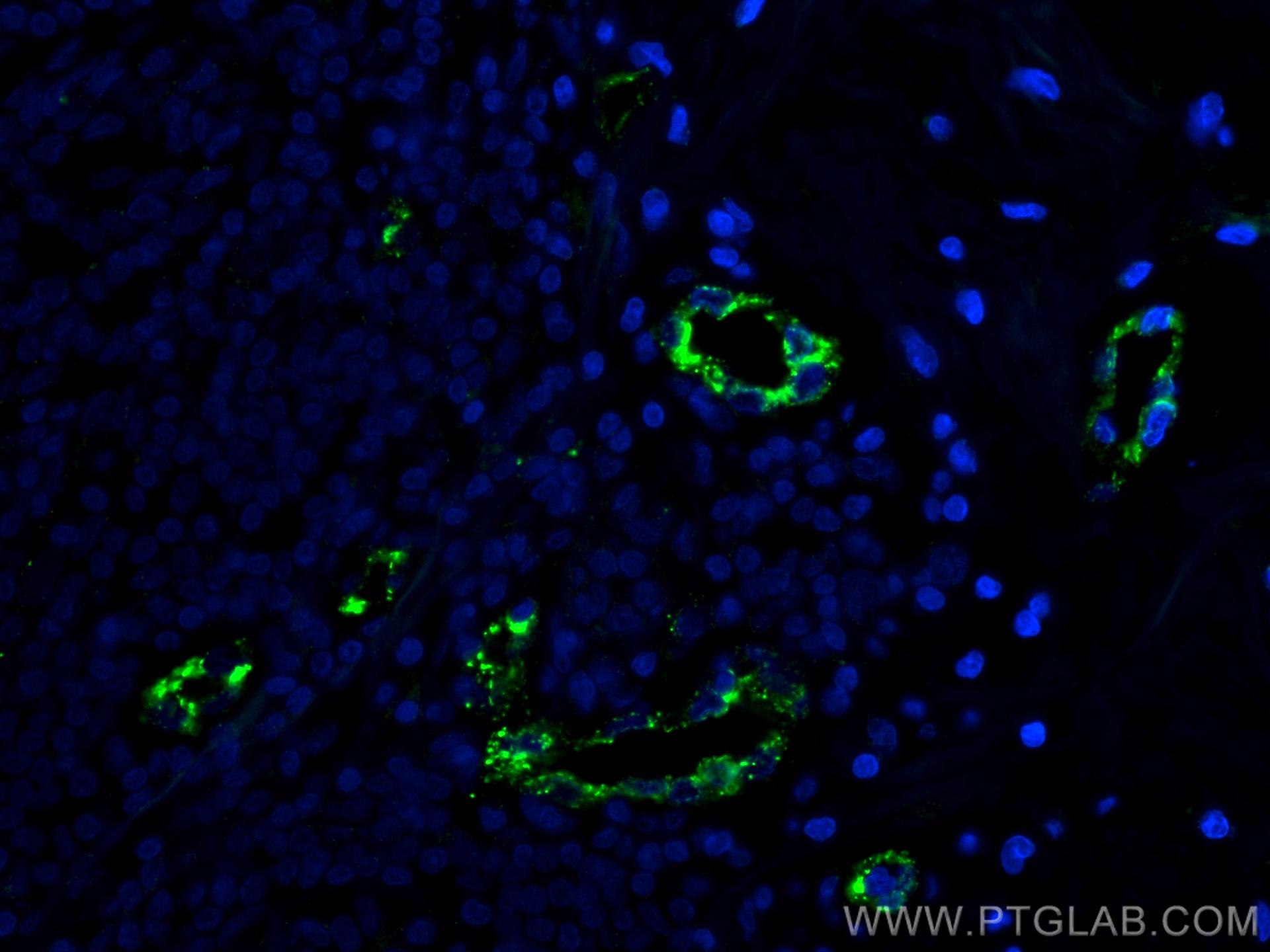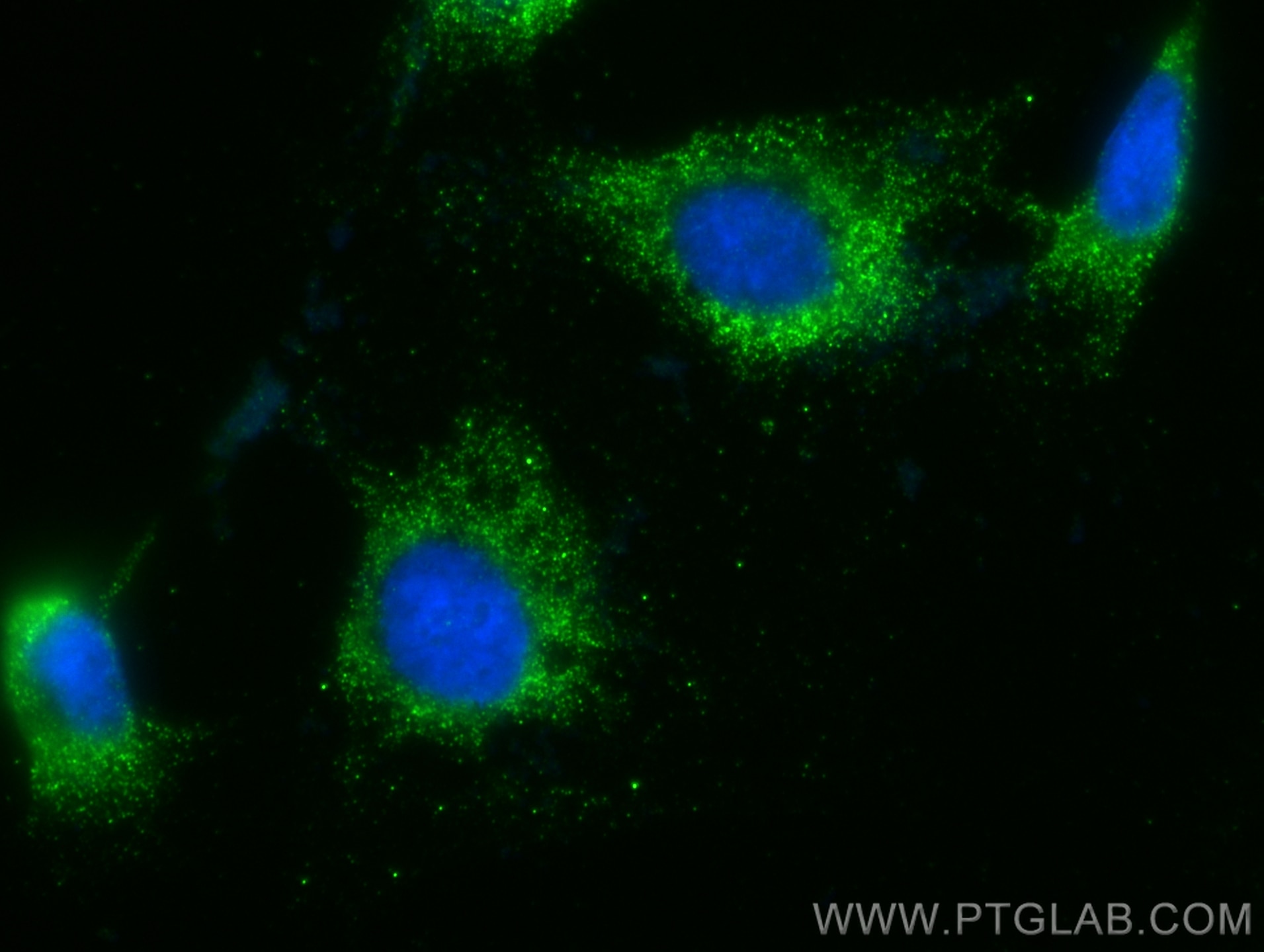Tested Applications
| Positive IHC detected in | human breast cancer tissue, human liver cancer tissue, human prostate cancer tissue, human tonsillitis tissue Note: suggested antigen retrieval with TE buffer pH 9.0; (*) Alternatively, antigen retrieval may be performed with citrate buffer pH 6.0 |
| Positive IF-P detected in | human breast cancer tissue |
| Positive IF/ICC detected in | HUVEC cells |
Recommended dilution
| Application | Dilution |
|---|---|
| Immunohistochemistry (IHC) | IHC : 1:250-1:1000 |
| Immunofluorescence (IF)-P | IF-P : 1:200-1:800 |
| Immunofluorescence (IF)/ICC | IF/ICC : 1:400-1:1600 |
| It is recommended that this reagent should be titrated in each testing system to obtain optimal results. | |
| Sample-dependent, Check data in validation data gallery. | |
Published Applications
| IHC | See 4 publications below |
| IF | See 15 publications below |
Product Information
66682-1-Ig targets VWF in IHC, IF/ICC, IF-P, ELISA applications and shows reactivity with human samples.
| Tested Reactivity | human |
| Cited Reactivity | human, mouse, rat |
| Host / Isotype | Mouse / IgG1 |
| Class | Monoclonal |
| Type | Antibody |
| Immunogen |
CatNo: Ag25578 Product name: Recombinant human vwf protein Source: e coli.-derived, PGEX-4T Tag: GST Sequence: MSSPLSHRSKRSLSCRPPMVKLVCPADNLRAEGLECTKTCQNYDLECMSMGCVSGCLCPPGMVRHENRCVALERCPCFHQGKEYAPGETVKIGCNTCVCQD Predict reactive species |
| Full Name | von Willebrand factor |
| Gene Symbol | VWF |
| Gene ID (NCBI) | 7450 |
| RRID | AB_2882036 |
| Conjugate | Unconjugated |
| Form | Liquid |
| Purification Method | Protein G purification |
| UNIPROT ID | P04275 |
| Storage Buffer | PBS with 0.02% sodium azide and 50% glycerol, pH 7.3. |
| Storage Conditions | Store at -20°C. Stable for one year after shipment. Aliquoting is unnecessary for -20oC storage. 20ul sizes contain 0.1% BSA. |
Background Information
Von Willebrand factor (VWF) is a large multimeric glycoprotein found in blood plasma involved in hemostasis following vascular injury. Due to the multimeric nature of VWF, it can range in size from 500 to 20,000 kDa due to the differences in the number of subunits comprising the protein. Each subunit is approximately 250 kDa (PMID: 9759493). The biosynthesis of VWF in vivo is limited to endothelial cells (PMID: 4209883) and megakaryocytes (PMID: 2413071). VWF synthesized in endothelial cells is either released directly into the plasma via 27186a secretory pathway, or tubulized and stored in organelles unique to this cell type called Weibel-Palade bodies (PMID: 16459301). Whereas VWF synthesized in megakaryocytes is stored in the alpha granules of platelets (PMID: 2046403). The primary function of VWF is as an adhesive plasma glycoprotein, particularly factor VIII; an essential blood-clotting protein (PMID: 6982084). VWF is also important in platelet adhesion to wound sites by binding specifically to type I and type III collagen (PMID: 11098050), with larger VWF multimers being most effective (PMID: 24448155).
Protocols
| Product Specific Protocols | |
|---|---|
| IF protocol for VWF antibody 66682-1-Ig | Download protocol |
| IHC protocol for VWF antibody 66682-1-Ig | Download protocol |
| Standard Protocols | |
|---|---|
| Click here to view our Standard Protocols |
Publications
| Species | Application | Title |
|---|---|---|
J Cell Mol Med Impact of chronic intermittent hypoxia on the long non-coding RNA and mRNA expression profiles in myocardial infarction. | ||
Int J Stem Cells Integrin α4 Positive Subpopulation in Adipose Derived Stem Cells Effectively Reduces Infarct Size through Enhanced Engraftment into Myocardial Infarction | ||
Exp Ther Med Biological activity of a vascular endothelial cell-hydroxyapatite orbital implant complex: An experimental study. | ||
Cell Death Dis Association of N6-methyladenine DNA with plaque progression in atherosclerosis via myocardial infarction-associated transcripts. | ||
J Am Heart Assoc Promotor Hypomethylation Mediated Upregulation of VCAN Targets Twist1 to Promote EndMT in Hypoxia-Induced Pulmonary Hypertension | ||
Int J Biol Sci Metallothionein 3 Potentiates Pulmonary Artery Smooth Muscle Cell Proliferation by Promoting Zinc-MTF1-ATG5 Axis-mediated Autophagosome Formation |
Reviews
The reviews below have been submitted by verified Proteintech customers who received an incentive for providing their feedback.
FH Kenzo (Verified Customer) (01-05-2024) | This monoclonal antibody worked well for immunohistochemistry on human heart sections to stain blood vessels.
|

